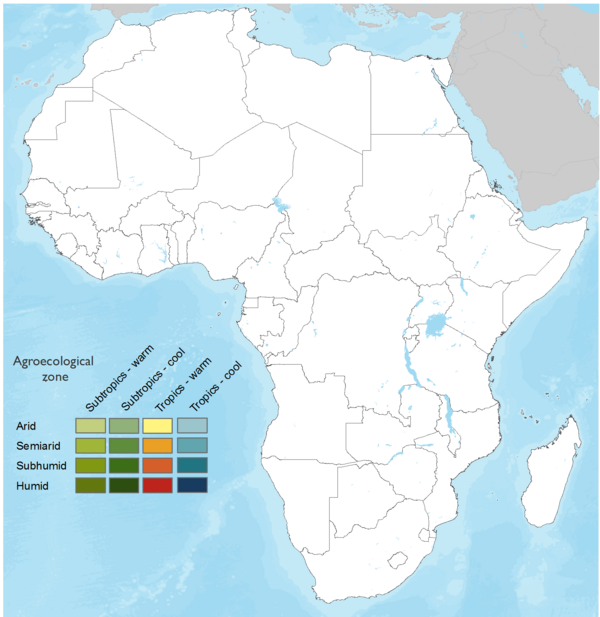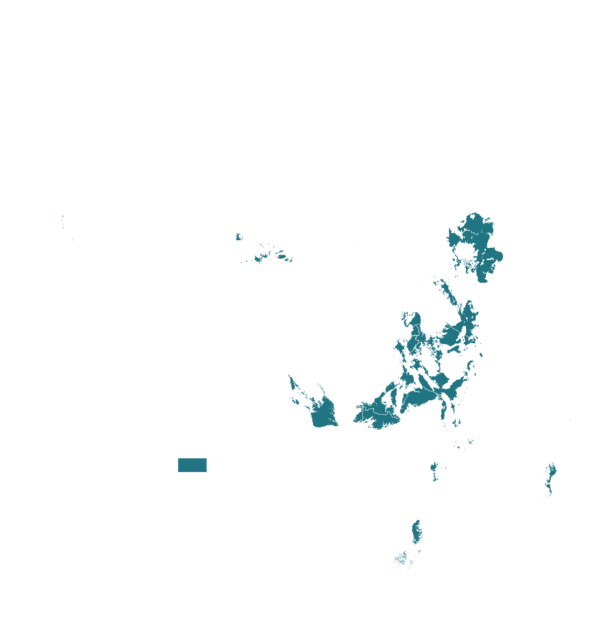

Ecopticide Agri, your 3-in-1 bio product against insect, fungi and nematode
Ecopticide Agri is a multifunctional environmental solution that functions as an insecticide, fungicide, nematicide, and bactericide. It offers comprehensive protection against various pests and pathogens, including Fall armyworm, Oidium, Botrytis, Powdery mildew, Downy mildew, Leaf spots, Molds, Nematodes, Leaf Bright, Coleoptera, and Sclerotinia sclerotiorum. The product's formulation aims to prevent resistance development among pests, and its preventive use helps reduce the risk of pest invasions.
This technology is validated.
Initial investment for manufacturer
Operating Investment
Harvest Losses: Conventional pest management products have been associated with harvest losses for farmers, impacting overall agricultural productivity.
Low Production Yield: The use of traditional pesticides often results in low production yields, hindering the ability of farmers to maximize their crop output.
Environmental Issues: Conventional pest control methods contribute to environmental problems, including soil depletion, increased drought susceptibility, and loss of biodiversity, posing long-term ecological challenges.
Pest Resistance: Pests have developed resistance to many existing pest control products, rendering them less effective over time. This resistance creates a continuous challenge for farmers to combat evolving pest threats.
Limited Efficacy: Chemical pesticides exhibit limited efficacy against new pest species and diseases, such as the fall armyworm, leading to insufficient protection for crops.
Multifunctional Solution: Ecopticide Agri serves as a multifunctional product, acting as a pesticide, fungicide, and nematicide. This addresses the issue of limited efficacy against various pests and diseases.
100% Biodegradable: Unlike traditional pesticides contributing to environmental problems, Ecopticide Agri is 100% biodegradable, mitigating concerns about soil depletion and biodiversity loss.
Concentrated Formula: The concentrated formula offers a solution to the problem of low production yield associated with conventional pest management, potentially leading to higher crop output.
No Harmful Solvent: The absence of harsh or harmful solvents addresses environmental issues and ensures the product is safe for use, overcoming concerns about the negative impact on the ecosystem.
Triple Mode of Action: Ecopticide Agri employs a triple mode of action to eliminate and repel pests, countering the challenge of pest resistance and providing more effective pest control.
Versatility Across Crops: The product's effectiveness on a wide variety of crops addresses the problem of limited protection against different pest species, offering a comprehensive solution for diverse agricultural needs.
For Manufacturers :
Producing Ecopticide technology offers a transformative solution addressing the need for safer and more environmentally sustainable pest control methods in agriculture, empowering diverse farming communities and contributing to improved global nutrition.
The technology is safeguarded by a license. It is imperative to engage with the technology provider to obtain the necessary license.
For efficient production of the input, it is essential to identify dependable suppliers for raw materials.
Regarding cost structure, factor in an initial investment of 300,000 USD and an operating investment of 30,000 USD.
Your potential clientele includes wholesale distributors of inputs to retailers, as well as development projects, government agencies, and NGOs.
Establishing robust partnerships with wholesale distributor networks is crucial for the success of your business.
For Users :
Using this technology offers a safer and more environmentally sustainable alternative to traditional pesticides, reducing exposure to harmful chemicals for agricultural workers while enhancing crop productivity and quality.
Given its availability in Togo, it's essential to factor in delivery expenses and possible import duties.
Regarding cost estimation, the technology is priced at 20 USD per liter.
The technology stands to yield a gross benefit of 64,000 USD with a return on investment of 200%.
To maximize outcomes, it is advisable to engage in partnerships with agricultural development institutes, fertilizer suppliers, and agricultural service companies for assistance and distribution.
Adults 18 and over: Positive high
Increased agricultural productivity due to more effective and eco-friendly pest control, improving livelihoods for adult farmers.
Others: Positive low
Benefits communities by promoting healthier ecosystems and reducing chemical contamination in local environments.
The poor: Positive medium
Lowers costs associated with synthetic pesticides, making pest control more accessible to smallholder farmers.
Under 18: Positive low
Safer agricultural environments with reduced exposure to harmful synthetic pesticides, lowering health risks for children living near farming areas.
Women: Positive medium
Supports women farmers, who often manage small-scale farms, by improving crop resilience and reducing input costs.
Climate adaptability: Highly adaptable
Natural formulation from plant essential oils and microorganisms enhances performance in diverse climates. It Reduces reliance on synthetic chemicals that may struggle in extreme weather conditions.
Farmer climate change readiness: Significant improvement
It enhances resilience by offering pest and disease control in changing climates
Biodiversity: Positive impact on biodiversity
Natural ingredients help preserve beneficial insects and soil organisms.
Carbon footprint: A bit less carbon released
Reduces reliance on fossil fuel-derived synthetic pesticides, leading to a smaller carbon footprint.
Environmental health: Greatly improves environmental health
Lowers ecological footprint, supporting sustainable and eco-friendly agricultural practices.
Soil quality: Improves soil health and fertility
Acts as a nematicide, reducing harmful nematode populations in the soil.
Water use: Same amount of water used
Product efficacy is not affected by water quality, suitable for areas with poor water quality.
Scaling Readiness describes how complete a technology’s development is and its ability to be scaled. It produces a score that measures a technology’s readiness along two axes: the level of maturity of the idea itself, and the level to which the technology has been used so far.
Each axis goes from 0 to 9 where 9 is the “ready-to-scale” status. For each technology profile in the e-catalogs we have documented the scaling readiness status from evidence given by the technology providers. The e-catalogs only showcase technologies for which the scaling readiness score is at least 8 for maturity of the idea and 7 for the level of use.
The graph below represents visually the scaling readiness status for this technology, you can see the label of each level by hovering your mouse cursor on the number.
Read more about scaling readiness ›
Uncontrolled environment: validated
Common use by intended users, in the real world
| Maturity of the idea | Level of use | |||||||||
| 9 | ||||||||||
| 8 | ||||||||||
| 7 | ||||||||||
| 6 | ||||||||||
| 5 | ||||||||||
| 4 | ||||||||||
| 3 | ||||||||||
| 2 | ||||||||||
| 1 | ||||||||||
| 1 | 2 | 3 | 4 | 5 | 6 | 7 | 8 | 9 | ||
| Country | Testing ongoing | Tested | Adopted |
|---|---|---|---|
| Benin | –No ongoing testing | Tested | –Not adopted |
| Burkina Faso | –No ongoing testing | Tested | –Not adopted |
| Democratic Republic of the Congo | –No ongoing testing | Tested | –Not adopted |
| Ghana | –No ongoing testing | Tested | Adopted |
| Sierra Leone | –No ongoing testing | Tested | –Not adopted |
| Togo | –No ongoing testing | Tested | Adopted |
This technology can be used in the colored agro-ecological zones. Any zones shown in white are not suitable for this technology.









| AEZ | Subtropic - warm | Subtropic - cool | Tropic - warm | Tropic - cool |
|---|---|---|---|---|
| Arid | – | – | – | – |
| Semiarid | – | – | ||
| Subhumid | – | – | ||
| Humid |
Source: HarvestChoice/IFPRI 2009
The United Nations Sustainable Development Goals that are applicable to this technology.

Reduces crop losses due to pests and diseases, helping ensure consistent food supplies.

Reduces the use of harmful synthetic pesticides, decreasing health risks for farmers, farmworkers, and surrounding communities.

Helps farmers adapt to climate variability by providing a pest control solution that is effective in various climates.

Lowers the risk of water contamination by reducing chemical pesticide runoff into water bodies.

Reduces dependence on synthetic chemicals, promoting more responsible and sustainable production.
Formulation Composition:
Dilution Process:
Dilution Ratio:
Foliar Application:
Soil Application:
Last updated on 22 December 2025